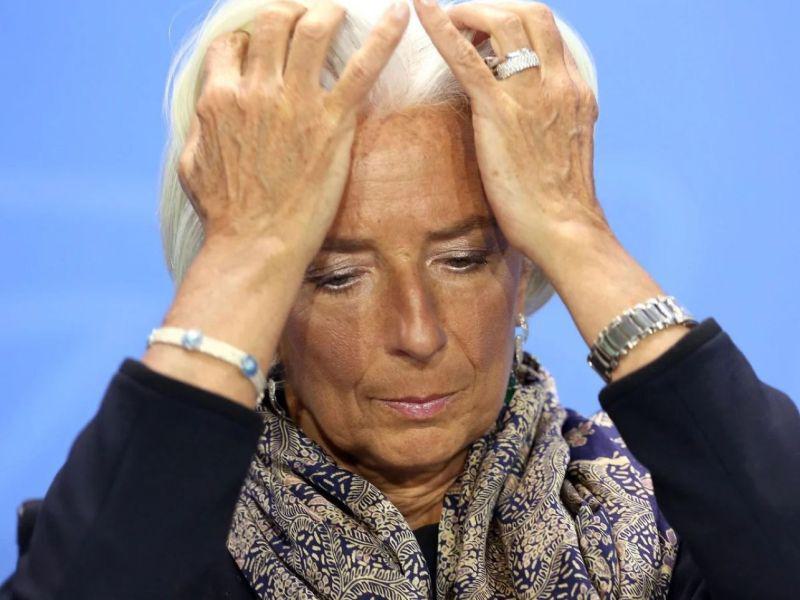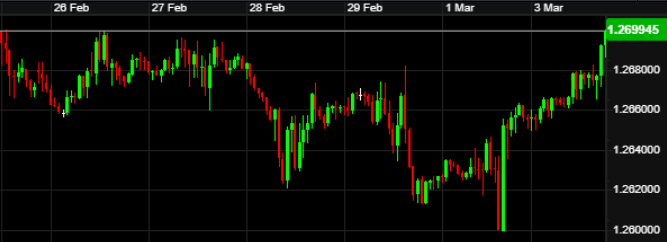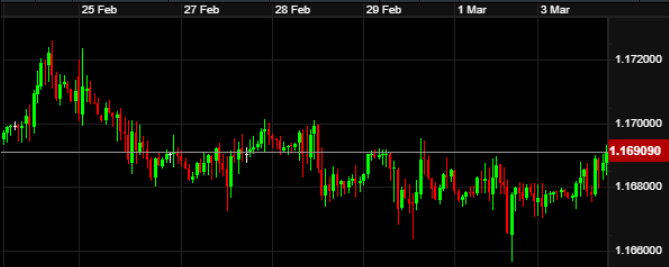ACM Update 04-03-24

Little over half a per cent’s worth of movement for sterling against the Euro and US Dollar last week as a number of speeches from MPC members failed to deliver any real surprises.
The start of March brings Chancellor Jeremy Hunt’s much talked about Spring Budget, with tax cuts expected. On the continent, the next ECB meeting this Thursday has Lagarde & Co in a quandary, whilst in the US the latest round of jobs data arrives as we near the next Federal Reserve meeting.
Another flat week for GBP and indeed a number of the majors, despite numerous events. There has been plenty of political hot air ahead of Jeremy Hunt’s spring budget coming up this week. In a weekend interview with the BBC, the Chancellor pledged he would only cut taxes in a “responsible way”, as the Tories ready themselves for election mode.
Most economic events were focussed around speeches from MPC members last week. The Bank’s Chief Economist, Huw Pill, confirmed he is “some way off” voting to cut interest rates yet. He warned against a false sense of security in inflation figures currently falling, citing UK economic activity being weak as another concern. He also made reference to the Bank of England not yet being near the edge of Table Mountain, replicating his own analogy from last year.
Fellow policymaker Catherine Mann declared that it is “wealthy Brits” who are making it harder to reduce inflation, given their immunity to the pressures of higher interest rates. Recent narrative from Mann suggests that she is erring more towards voting to hold rates at the next MPC meeting, rather than her long-standing penchant for a hike.
Mann’s MPC compatriot, Dave Ramsden, instead believes inflation factors remain far too high to be considering a cut just yet.
In the only real UK data release, we saw UK mortgage approvals for January, hitting their highest levels since October 2022. This is therefore the first month that mortgage approvals have got back above the turmoil of the Truss-Kwarteng “era. Higher interest rates have also been a factor obviously.
US GDP for Q4 was the big release last week, coming in a fraction under the original estimate at 3.2%. This is still an incredibly strong figure when compared to the plus/minus zero figures out of the UK and Eurozone for the same period.
The growth was fueled by healthy consumer spending and means the US economy grew by 2.5% in 2023, beating the 1.9% from 2022. US quarterly growth figures have now been over 2% for six straight quarters, showing higher interest rates are not impacting the economy, and are far from pushing it into the recession that many had predicted by now.
Everything else was centred around comments from an assortment of Federal Reserve members. As a snapshot, Jeffrey R Schmid commented that the bank needs to be patient and shouldn’t preemptively adjust policy. Susan Collins & John Williams suggested the first rate cut should be “appropriate later this year”. And the often vocal Raphael Bostic is in his mind penciling in a rate cut for “some point this summer”.
In Congress the usual last-minute deal was once again met to avoid a partial Government shutdown. This is only partial though as the remainder (including defence & security) still faces a 23rd March shutdown if a deal is not reached.
Recent movements or the lack of them, can be seen in the below chart:

In Europe, the latest CPI Flash estimate came in at 2.6% (down from 2.8%) as electricity prices continue to fall. This was still a fraction above the 2.5% forecast. Core inflation though remains stubbornly high at 3.1%. which continues to be a worry.
Christine Lagarde spoke about her concern regarding second round effects of inflation, despite falling inflation and record low levels of unemployment in the bloc. This week’s ECB meeting is expected to see no change in rates, with markets still expecting a June rate cut instead. However the push and pull of falling inflation, high employment and no growth may weigh on the ECB’s mind this week. This will likely be their tightest decision thus far.
German data still remains weak, with little grown and inflation remaining stubborn. Despite record highs in employment, a technical recession is forecast for Q1. Spain’s economy on the other hand grew 2.5% in 2023, adding 783,000 jobs.
As mentioned, barely 0.5% movement from top to bottom last week on GBP-EUR, as illustrated in the chart below:

The week ahead:
Monday – No significant data
Tuesday – SPA/ITA/FRA/Eurozone/GER/UK/US Service PMIs (08:15-14:45 UK time), Eurozone PPI (10:00)
Wednesday – Jeremy Hunt Budget (12:30), ADP Non-Farm Employment (13:15), Bank of Canada rate announcement (14:45), Jerome Powell testimony (15:00), JOLTS Job Openings (15:00), Federal Reserve Beige Book (19:00)
Thursday – ECB Rate Announcement (13:15) & Press Conference (13:45). Jerome Powell testimony (15:00)
Friday – Canada Unemployment Rate (13:30), US Non-Farm Payrolls exp @ 190k (13:30)
Aside from the lack of interesting data on Monday, quite a busy week ahead in fact. Tuesday morning’s latest round of Services PMI data will give an early indication in the sector that forms the largest part of most economies.
The biggest UK event will inevitably be Jeremy Hunt’s budget on Wednesday lunchtime in the House of Commons. How financial markets will digest it is one thing, but how the UK electorate will digest it in the run up to a UK General Election is very much another thing. Expect all the usual elements of a bright red briefcase, a very long speech and plenty of jeering from across the aisle.
For the US, Jerome Powell will spend his week in front of the House & Senate, answering questions on current and ongoing Federal Reserve policy. Any new responses could drive USD throughout the middle part of the week. The Fed’s Beige Book release also takes place on Wednesday evening, containing the data the committee will use in two weeks’ time for their next policy decision.
In the jobs sector, the US Non-Farm Payrolls data for February will be released on Friday at 13:30 UK time. The ever-unpredictable matrix is forecast to show that 190,000 jobs were added to the US economy in the month. That said, the forecast last month was almost the same and we ended up with virtually double that number at 353,000. A strong jobs figure will continue to support the US Dollar.
Just ahead of that in importance will be Thursday lunchtime’s European Central Bank meeting in Frankfurt. At the turn of the year, the March meeting was almost suggested as a certainty for a first rate cut to make an appearance. Since then, ECB commentary has been more reserved and the ECB have a bit of a battle on their hands as to what to do.
FX markets are expected to see more movement than last week, so for any imminent requirements make sure to reach out to the Aston team to discuss an appropriate way forwards.
Have a great week.